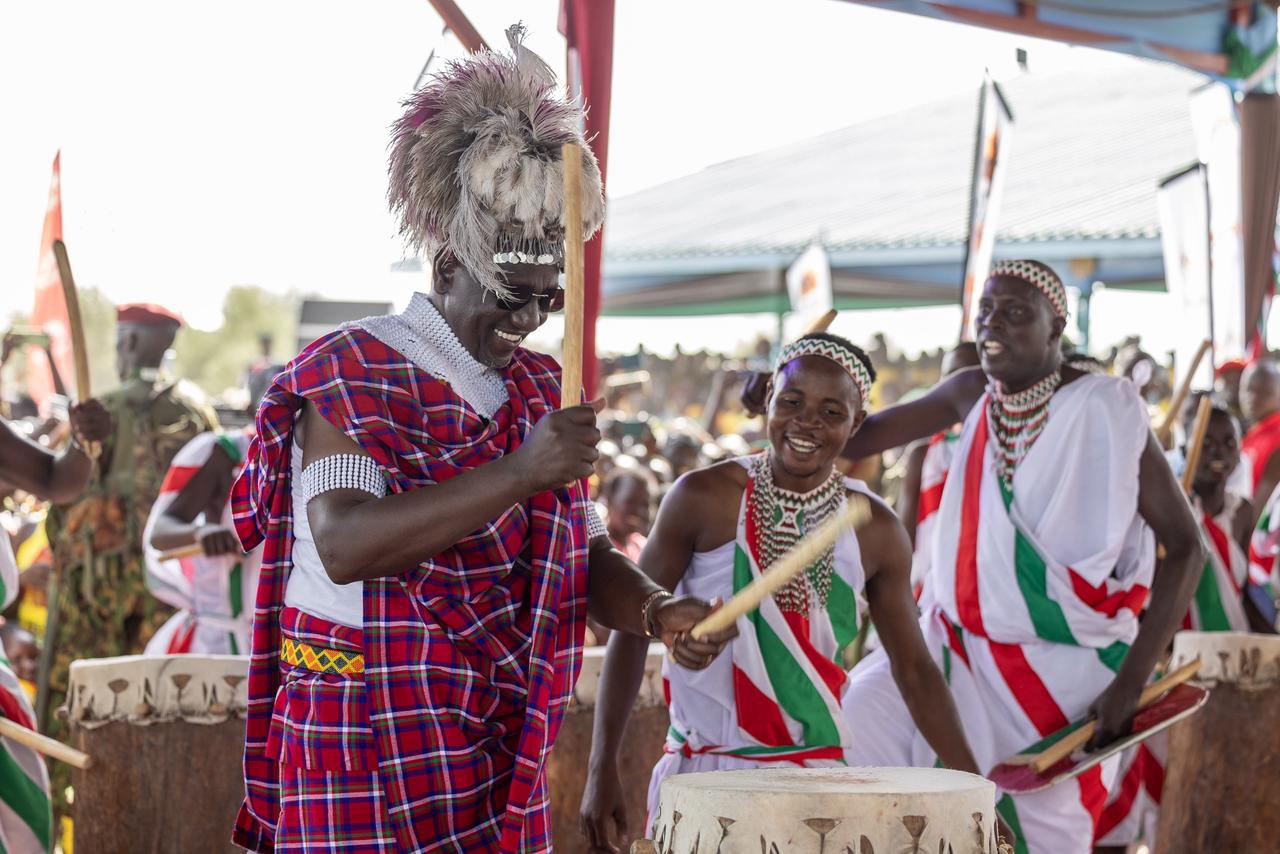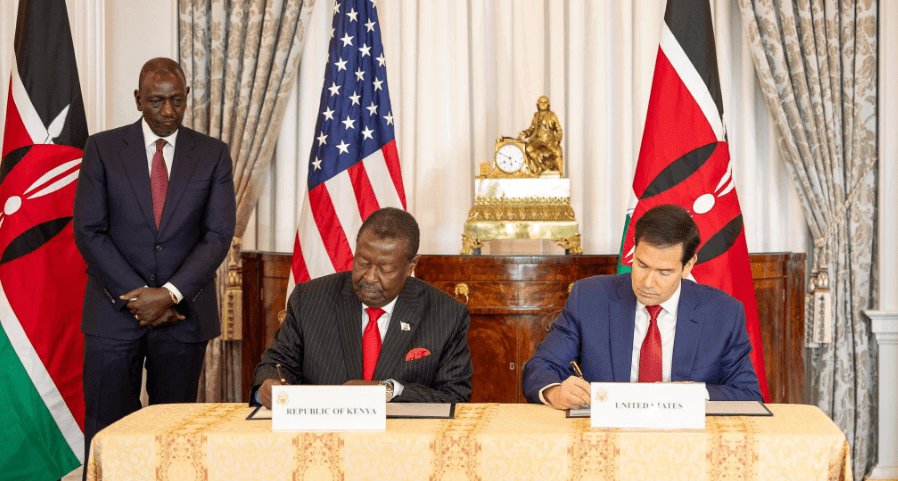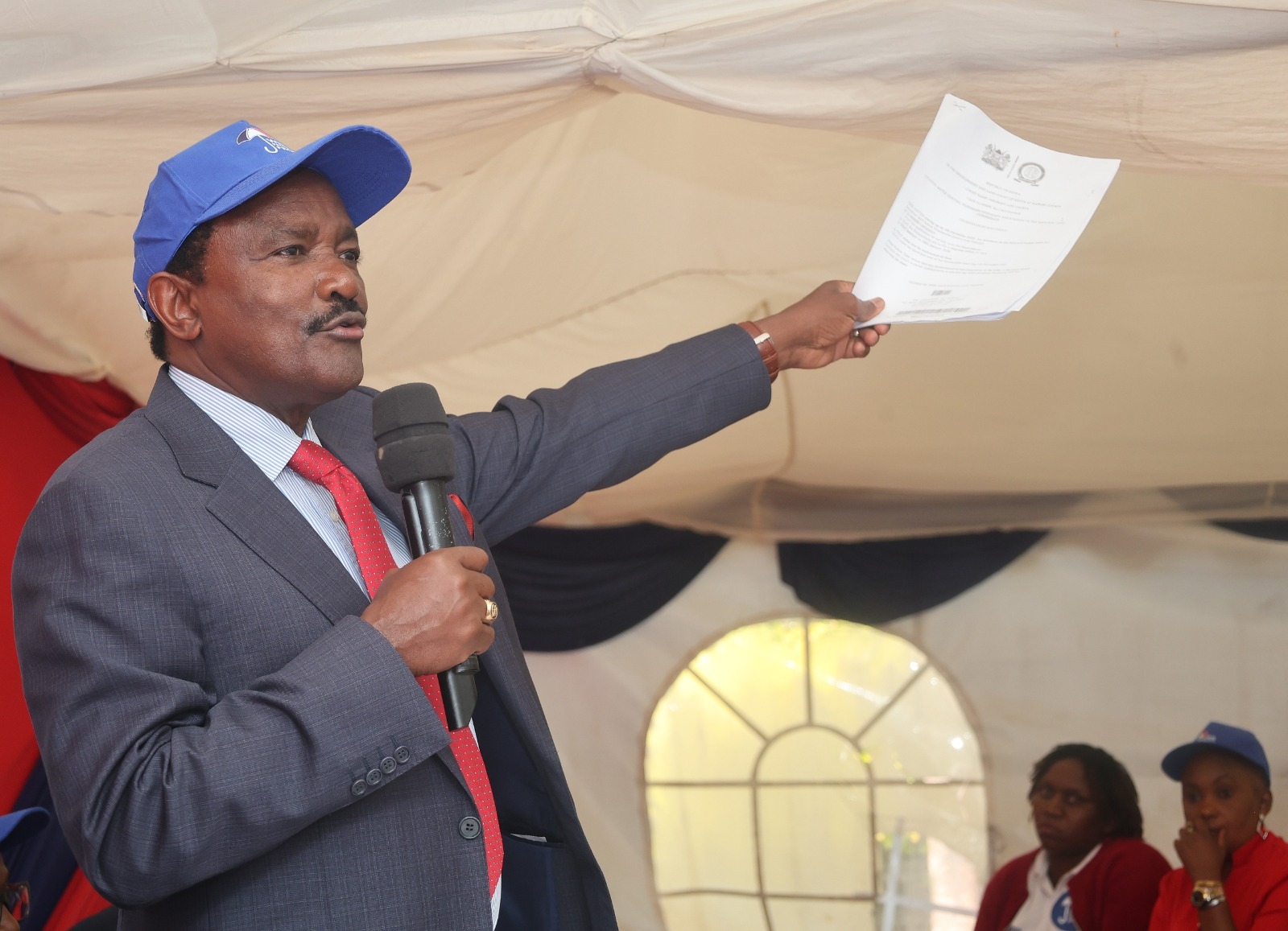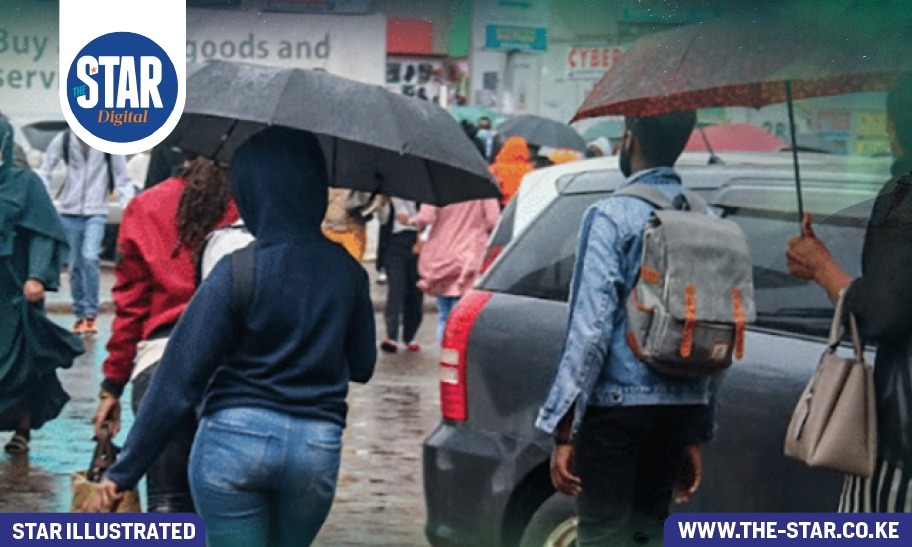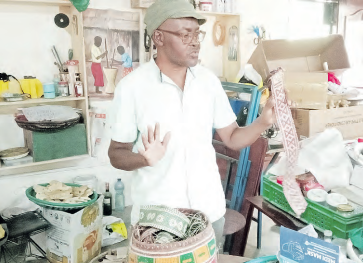
Common Interest founder Julius Musyoki displays the materials he uses for his art
in his workshop in Bombolulu, Mombasa /CHARLES MGHENYI
What started as a simple pastime to make his son a wooden toy car has now shaped Julius Musyoki into an accomplished designer and sculptor.
Musyoki, the founder of the Common Interest Organisation in Mombasa County, decided to make a wooden toy car for his son out of frustration after repeatedly buying toys that didn’t last long.
After he made the first, he decided to make more and sell.
“I started with five and hawked them. My venture soon blossomed and I moved from selling on the streets to exhibitions. My first fair was at Nyali Baptist Church. Out of 33 pieces, I sold 22 at Sh1,000 each and no one complained about the price,” he said.
He then started posting the toys on social media. “One day, a friend of mine, who works in an art shop called me to ask about how I could supply them with toys and that became a good market for my products,” Musyoki said.
This was to be his source of livelihood during the Covid-19 lockdown.
It was during that time when someone shared with him a link for a grant. “It was call for application for Go Blue Project grants. I decided to give it a try and went through all the stages and to my surprise, I got approved,” Musyoki said.
“We signed the grant digitally. A team from Camões, the Portuguese Development Agency, came to visit alongside those from the Sustainable Tour and Travel Africa. They came to my house and I told them that was where I was operating from because I could not afford a workshop space. I displayed the toys on the sofa set and they were convinced.”
Musyoki’s Common Interest Organisation is one of the groups in the Coast that have benefitted from €18,500 (about Sh2.5 million) funding under the Go Blue Project to develop culture and heritage themed products.
He said his project is focused on Mijikenda and Pokomo communities because of their rich cultures.
“My project’s aim is to develop unique crafts as tourism products, the things people buy when they come to Mombasa that are inspired by the culture and the Coast region,” Musyoki said.
“When we received the grant, we focused on products that we could put to the market quickly and we chose the wooden toy cars, infused with elements of culture, because we already had a market for it.”
To develop other products, the team at Common Interest, undertook research to find what is cultural in terms of artistic presentation.
Among many cultural presentations, woven baskets and khanga (wrappers) were predominant.
The next phase involved visiting communities with weaving skills. The Pokomo were prioritised because of their unique weaving and colour combinations.
“We went to Wenje and Vukoni in Tana River county where weaving is the economic mainstay for women and bought their handcrafts that included baskets and mats. The aim was to have samples of the real artwork for further development of design motifs,” Musyoki said.
“We then focused on Giriama arts, their cultural handcrafts and even clothing. We also identified daily women chores as unique elements of culture and settled on doing paintings of women fetching water, grinding grains and food preparations.”
Their designs were also influenced by marine life.
“When I got the opportunity to work with other artisans including people living with disability, we developed a generic fish toy, one that people can identify with, but of course we need to do other species that are common like dolphins, sharks and if possible, octopus.”
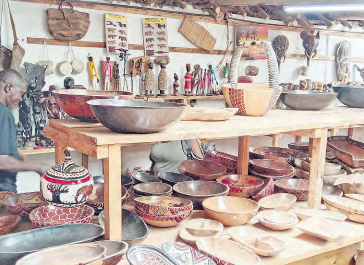
Just like Musyoka, whose enterprise has been transformed by grants, in Diani, Kwale county, members of the Millennium Handcraft Cooperative received sub-grants from the African Pro-Poor Tourism Development Centre, a beneficiary of the Go Blue Project.
With a grant of Sh334,000 from Camões, IP, the Portuguese Development Corporation, they have expanded the showroom to accommodate more carvings.
Gideon Mutua, the vice chairman of Millennium Handcrafts Cooperative, said lack of space was a big challenge as their clients could not move around the shop.
“We went through the grant application process in 2023 and were successful,” he said.
Before the small business grants, the group operated in a small area they used as a showroom and office.
Today, they have a spacious showroom that enables them to display more products. They have also acquired a big tent that has transformed the sculptors working space from open air to a shed, increasing productivity.
“At first, we were concentrating more on traditional artifacts such as drums, bows and arrows, walking sticks and clubs, of course carvings of animals,” he said.
The business is dependent on tourism and when the season is low, the sales go down.
However, the members are grateful to the project because through the funding they are finalising their website, which will come in handy in the marketing of their products.
Mutua said it will help in boosting their sales as most of their foreign clients will buy online and have their products sent either by ship or air.
Sixteen organisations in tourism and cultural heritage from the six coastal counties have received grants through the Go Blue project to advance tourism and cultural heritage within the blue economy.
The amount granted is close to €600,000 (Sh80 million). Through the enhanced capacities of the 16 organisations, more than 100 new long-term jobs have been created and hundreds of short term and indirect jobs.
Apart from grants, the organisations received mentorship in business development services including skills to develop business plans, marketing plans, monitoring and evaluation plans as well as skills in designing impactful communication and visibility plans.
Implemented through collaboration with Jumuiya ya Kaunti za Pwani, the Go Blue Project is an initiative of the Government of Kenya and the European Union to advance coastal development agenda and the blue economy.
Designed to touch as many aspects of the blue economy, tourism is one of the key pillars, with focus on promoting cultural heritage.








